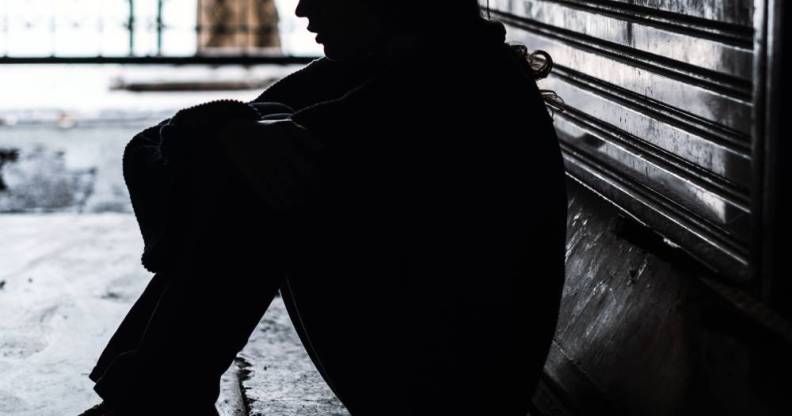Government urged to vaccinate vulnerable, homeless LGBT+ youth as a life-saving priority

(Envato Elements)
The UK government must prioritise LGBT+ young people facing homelessness in the next phase of the COVID-19 vaccine rollout, a charity says.
Charity akt – which supports LGBT+ young people in the UK who are facing or experiencing homelessness, abuse or living in a hostile environment – said the government needs to protect these young people, who are at higher risk of catching and spreading COVID and therefore need the vaccine.
Jo Bhandal, campaigns policy and research officer at akt, told PinkNews that COVID has “been accelerating homelessness” for young people – especially those who are LGBT+ – because they are more likely to have “lost their jobs, been furloughed, had reduced hours, been unable to keep up with rent and occurred rent arrears as a result of the pandemic”.
Because of COVID-19, more young people are having to live in temporary housing or sleep rough, Bhandal said, which means they need the vaccine as they are at a higher risk of contracting and spreading the virus.
“It’s not just about the individual,” Bhandal explained. “It’s about the knock-on effect as well.”
She said LGBT+ youth experiencing homelessness are at increased risk because they are in unsafe, unsanitary conditions if they are sleeping rough or are in constant, close contact with a host of individuals if they are sofa surfing. In both scenarios, Bhandal explained there is an increased risk that the individual can contract COVID-19, but also could potentially spread the virus to others.
As such, she called on the government to prioritise LGBT+ youth at risk of homelessness for the vaccine, not just to protect themselves but also the people they come into contact with.
Bhandal said: “It’s likely that a lot of young people would not be getting their vaccinations until much later in the year, once we’ve gone through the priority groups.
“But [LGBT+ youth at risk of homelessness] are also seeing a disproportionate impact of COVID and many have underlying, pre-existing conditions, making them more vulnerable.”
Homelessness among LGBT+ youth has increased as a result of the pandemic
From 2019 to 2020, there was a fivefold increase in young people reporting to akt that they were rough sleeping.
According to akt’s research, nearly a quarter (24 per cent) of the 103,000 young people at risk of homelessness identify as LGBT+.
Between April and August 2020, akt saw a 118 per cent national increase in new referrals for help when compared to the same period in 2019. The charity said this massive spike in referrals for services reflects on the ongoing impact of the pandemic.
“It’s not some marginal issue, which often queer youth homelessness is seen as,” Bhandal said. “The reality is COVID is having a huge impact on levels of homelessness among LGBTQ+ youth, and these issues are likely going to have a huge impact for time to come.”
She said: “We are seeing a huge influx in referrals, and there’s been a huge impact on people’s mental health, financial security and homelessness in general.
“Sofa surfing and street homelessness are still there, and they’re not going to go anytime soon because of COVID.”
There was a 66 per cent increase in new referrals to akt’s London services in 2020, with over a quarter (26 per cent) of the referrals being from young LGBT+ people who were Black or mixed race.
World Health Organization has called on governments to vaccinate people experiencing homelessness
Bhandal said the UK government needs to prioritise people facing homelessness for the next phase of the vaccination programme, which would be in line with WHO guidelines. The WHO has acknowledged that people facing homelessness are particularly at risk during the pandemic.
As such, the WHO called on governments to provide targeted, pro-active outreach and testing to meet the existing needs of people experiencing homelessness as well as COVID-specific testing.
Local authorities in Redham, Oldham and Liverpool have already said they will be offering the vaccine to people who find themselves with no permanent home, along with other groups already receiving the vaccine.

